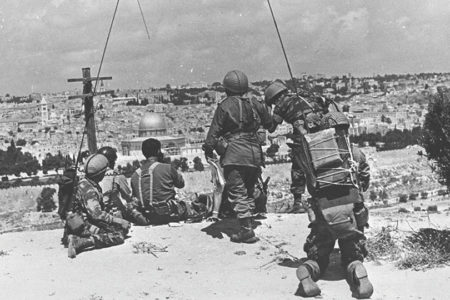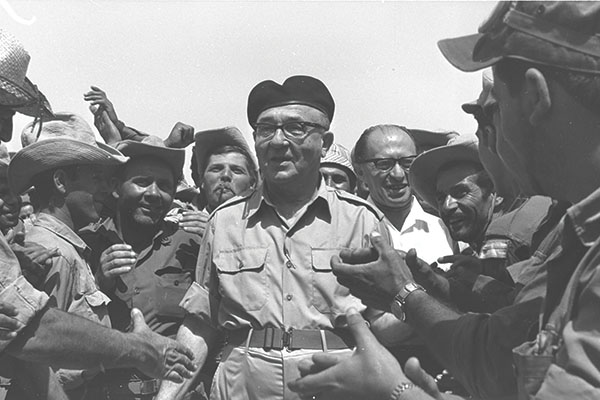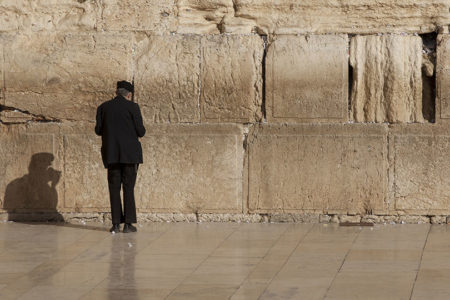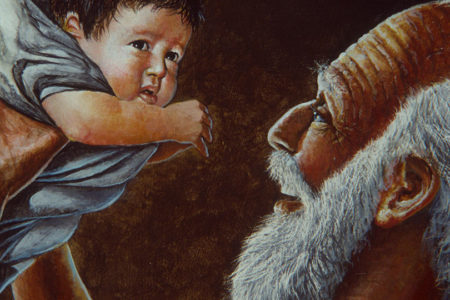Menachem Begin
The passing of Menachem Begin, Israel’s sixth Prime Minister, on March 9th, marked the end of a singular period in the history of the modern State of Israel. To his enemies, Begin was counted a hawkish, intransigent warrior of a bygone day, bereft of a sense of accommodation and compromise so essential to 20th century politics. Indeed, there are those who insist on likening Begin’s resistance efforts against the British to the terrorism rending the Middle East and so much of our world today. Although a compelling case can be made to the contrary, Begin’s pre-State activities are not the total measure of the man. And whether one agrees or disagrees with his political positions, all must acknowledge that he left an indelible mark upon the Israeli political landscape. If for no other reason, Menachem Begin’s death marks the departure of the last of the larger-than-life personalities who rose with the rebirth of the nation; for, after all, he stood with the Ben-Gurions, Meirs, and Dyans of an era that singled out a few to stand apart from the rest when the story of the times is told.
Menachem Begin made a significant contribution to the ministry of The Friends of Israel, for it was the Irgun, a group led by Begin, that was responsible for bringing our own Zvi from Europe to Israel. Picking up the ragamuffin war waif from Begin’s native Poland was an act that would change hundreds of lives and impact many thousands of people the world over. Of all the achievements credited to the man who rose to the position of Prime Minister, perhaps none was more significant than bringing to Israel one who would become a magnificent instrument in the hand of God.
It was Begin, the designated hawk, who, on March 26, 1979, stood at the White House in Washington, DC, to clasp hands in peace with America’s President Carter and Egypt’s Anwar Sadat. Those who shared the moment cannot put out of their minds the thunderous words of Israel’s Prime Minister: “No more war!” His was the hope of a generation of Abraham’s children who yearned above all else to see the end of bloodshed and live the dream of peace in their ancient homeland. Contemporary historians are fond of crediting Anwar Sadat with the distinction of being the grand risk-taker of Camp David. And while it was emphatically true that Anwar Sadat displayed remarkable courage in making peace with the erstwhile enemies of Islam, it was Begin and Israel who were taking a spectacular leap in the dark. In exchange for the Sinai security buffer, forfeited airfields, abandoned oil resources, and settlements, Begin took away only a piece of paper declaring Egypt’s recognition of Israel’s right to exist. It was, in Menachem Begin’s eyes—and those of peace-hungry Israelis—worth the risk.
Functionally, Begin was perhaps the most religious of Israel’s Prime Ministers who had gone before him. He refused steadfastly to acknowledge the West Bank as anything but Judea and Samaria and doggedly held the belief that possessing the whole of Israel was the inherent, God-given right of the Jewish people.
Begin recognized that Bible-believing Christians are true friends of Israel who hold compatible views on Jewish rights in the land promised to Abraham and his seed. His example endures in the growing appreciation for evangelical support manifested by Israeli statesmen.
As with all public figures, Menachem Begin was not immune to political misfortune or personal tragedy. The death of his wife was a devastating blow. Then there was Israel’s war in Lebanon, which has been compared by some to America’s Vietnam. Whether this is a fair assessment can be debated. One can affirm, however, that for the Prime Minister, as for his fellow Israelis, the lives of 600 of the nation’s finest young men were a terrible price to pay—a price that perhaps contributed to sending him into seclusion for the remainder of his life.
Prime Minister Yitzhak Shamir spoke of his predecessor as “the man who fought throughout his life for the land of Israel and the people of Israel. In the history of the nation, the name of Menachem Begin is inscribed alongside the leading figures of all generations … Under his leadership, the people of Israel achieved a peace treaty with the largest Arab state, Egypt.”
All will agree that it was a beginning. Bible believers will agree that it was a faint echo of the Shalom that will be fully realized only when Israel’s Messiah comes to establish His peace.








